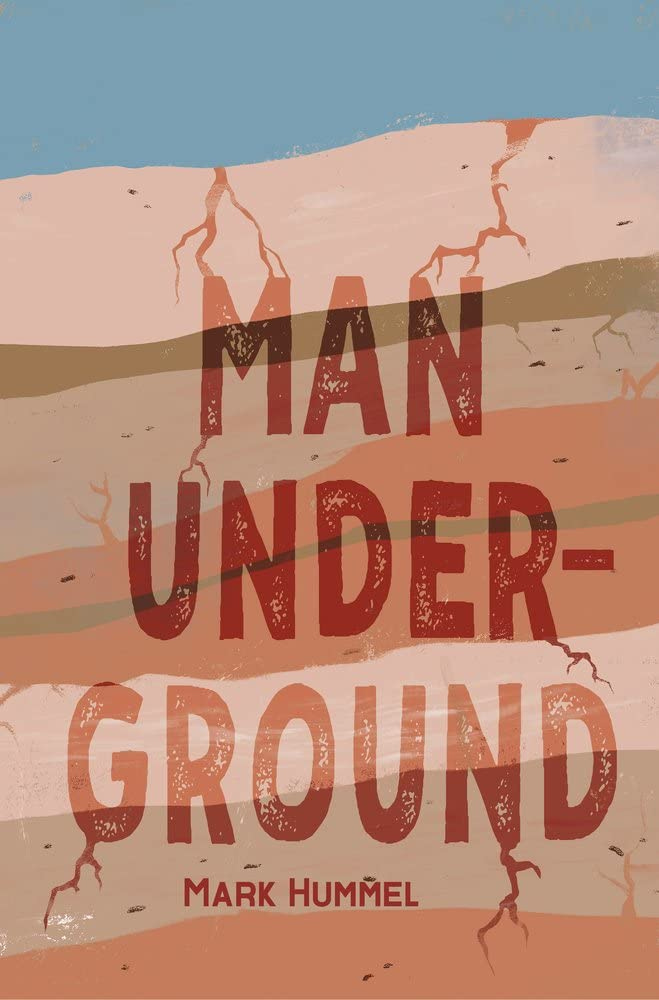Emergency Group: New Heavy Psychedelic Fusion
Also, one of my neighbors wrote a book!
I am not a fan of “jam bands.” I love a whole lot of improvised music, obviously, but there’s a big difference between improvisation and jamming. Emergency Group are an improvising ensemble composed of guitarist Jonathan Byerley, keyboardist Robert Boston, bassist Dave Mandl, and drummer Andreas Brade. They’re from Brooklyn, but they’re trying hard to overcome that, so don’t hold it against them.
They started out as a trio; Mandl joined in 2020. Their first rehearsal/session with him was recorded on cassette and released three years later as Crisis in Mono (First Session), one of three releases in 2023 so far. I haven’t heard it. I have heard the follow-up, Inspection of Cruelty, and their third album, Venal Twin.
Inspection of Cruelty consists of two long tracks recorded live in the studio in November 2022. They’re each between 22 and 24 minutes long, perfect for one side of an LP (or a cassette, which is the format they actually came out on). When I listen to it, I hear elements of Miles Davis’s 1970 band (Gary Bartz, Keith Jarrett, Michael Henderson, Jack DeJohnette, Airto Moreira), early Santana, Can, and a splash of SubArachnoid Space.
Venal Twin, recorded in January 2023, is four tracks long and runs nearly 54 minutes. It’s more varied than its predecessor, shifting through deep, trippy funk, psychedelic hard rock, and some relatively adventurous improvisatory explorations. People have made comparisons to On the Corner-era Miles, but I don’t hear that at all. There are portions of “Dime Champ” that remind me of the Grateful Dead’s Fillmore West 1969 box, the only thing by that band that I’ve ever enjoyed (and that only a little). Brade’s drumming is an avalanche, though, so you stay awake. The next track, “Pyramid Street,” lets Byerley off the chain, and he emits some extremely crunchy, distorted noises while Boston takes a moonlight-on-the-highway organ solo. It definitely feels like these guys are aiming for classic jazz-rock fusion, but since they’re in full improv mode, the music never quite comes together. Say what you will about Mahavishnu Orchestra or Return to Forever or Tony Williams Lifetime, they wrote tunes.
I would very much like to hear Emergency Group start composing more formally structured music. These two releases prove that they’ve got a collective voice, and that they can spontaneously generate some pretty strong riffs. With just a little bit of discipline, they could be absolute monsters.
The state of Montana has a big literary community. That’s no secret. Jim Harrison lived here; Barbara Ehrenreich was born here; Thomas McGuane still lives here; and that’s just the people I’m immediately familiar with. Given that I’m on track to publish a book next year, I supposed I count as a “Montana writer,” too…
Anyway, I recently made the acquaintance of Mark Hummel, a writer who lives in the same town as me. His book Man, Underground has just been released (buy it from Amazon) and when I expressed interest, he sent me a PDF for review.
It’s the story of a nameless man who literally lives underground. He’s built an architecturally sound and frankly appealing (to me anyway) subterranean apartment where he can sit around listening to old records, remembering when he used to be a music journalist, and trying not to let the tragedies in his past overpower him. One day, a young woman knocks on his door to let him know that the city has begun to look askance at his unorthodox home…and she’s here to help, whether he likes it or not.
Their friendship deepens, and we learn that she too has a lot of pain to run from. The parameters of the relationship shift, each one offering the other some portion of what they need, and gradually coming out of their respective shells. I don’t want to say much about the plot, but I will say that they don’t sleep together. This isn’t that kind of book.
Hummel’s dialogue is sharp and witty, his plotting feels natural and never tips over into melodrama, and his ability to convey the mental contortions and deep inward focus of one who has spent too long away from society is very impressive. He strikes a delicate balance: his protagonist is an asshole, and he never allows you to think for a moment that the guy is in any way cool or someone to be emulated, but he doesn’t make him pitiable, either. He’s multifaceted, often unpleasant but capable of redemption and kindness. You know, like a person. And the same goes for the teenage co-protagonist, Monika. She’s rude and snappish at times, and Hummel never goes the self-flattering route of allowing her to seem like she looks up to the protagonist; their relationship is remarkably balanced.
The book drops in allusions to Faulkner, Dostoevsky, Ellison, and Melville, among others, but what it reminded me of most was a little-known novel from about 30 years ago: Slam, by Lewis Shiner. That book was about a 39-year-old guy who gets out of prison and takes a job as caretaker of a rich dead woman’s house and its 23 cats, soon forming a relationship with a 19-year-old girl (yes, they do sleep together), which in turn brings him into contact with the local youth subculture of skateboarders and early adoptees of online bulletin boards, the ancestors of today’s internet. Like Man, Underground, it’s about people who aren’t really suited to the regular world, but are able to adapt and connect with others who share their values, creating a community just about out of sight of everyone else that works a little better for them. It’s out of print in physical form, but you can find an ebook version easily enough.
It’s hard to write books about people on the fringes of society without making too much of a case for them. I mean, mainstream society works for the overwhelming majority of people, you know? Most folks like comfort, they like security, and they shouldn’t be condemned for that. Sneering at “plastic suburbanites” or whatever is lazy. People we pass on the street or in the supermarket aisle have problems we can’t possibly know about, and sooner or later the quotidian realities of existence pull us all in, to one degree or another. So a book like Man, Underground, which doesn’t paint any of its characters with a broad brush, is worth reading and good to have around.
As I mentioned in last week’s newsletter, I’m selling all the CDs from Burning Ambulance Music at a slightly discounted price if you order them directly from me rather than through the label’s Bandcamp page. The first four — Senyawa’s Alkisah, Ivo Perelman & Nate Wooley’s Polarity, Matthew Shipp & Whit Dickey’s Reels, and Graham Haynes & Submerged’s Echolocation — are $11 each plus shipping; the last four — Breath of Air’s Breath of Air, José Lencastre’s Inner Voices, Ivo Perelman & Nate Wooley’s Polarity 2, and Diego Caicedo’s Seis Amorfismos — are $13 each plus shipping. Email burningambulance@gmail.com to tell me which ones you want, and I’ll quote you a price.
That’s it for now. See you next week!




